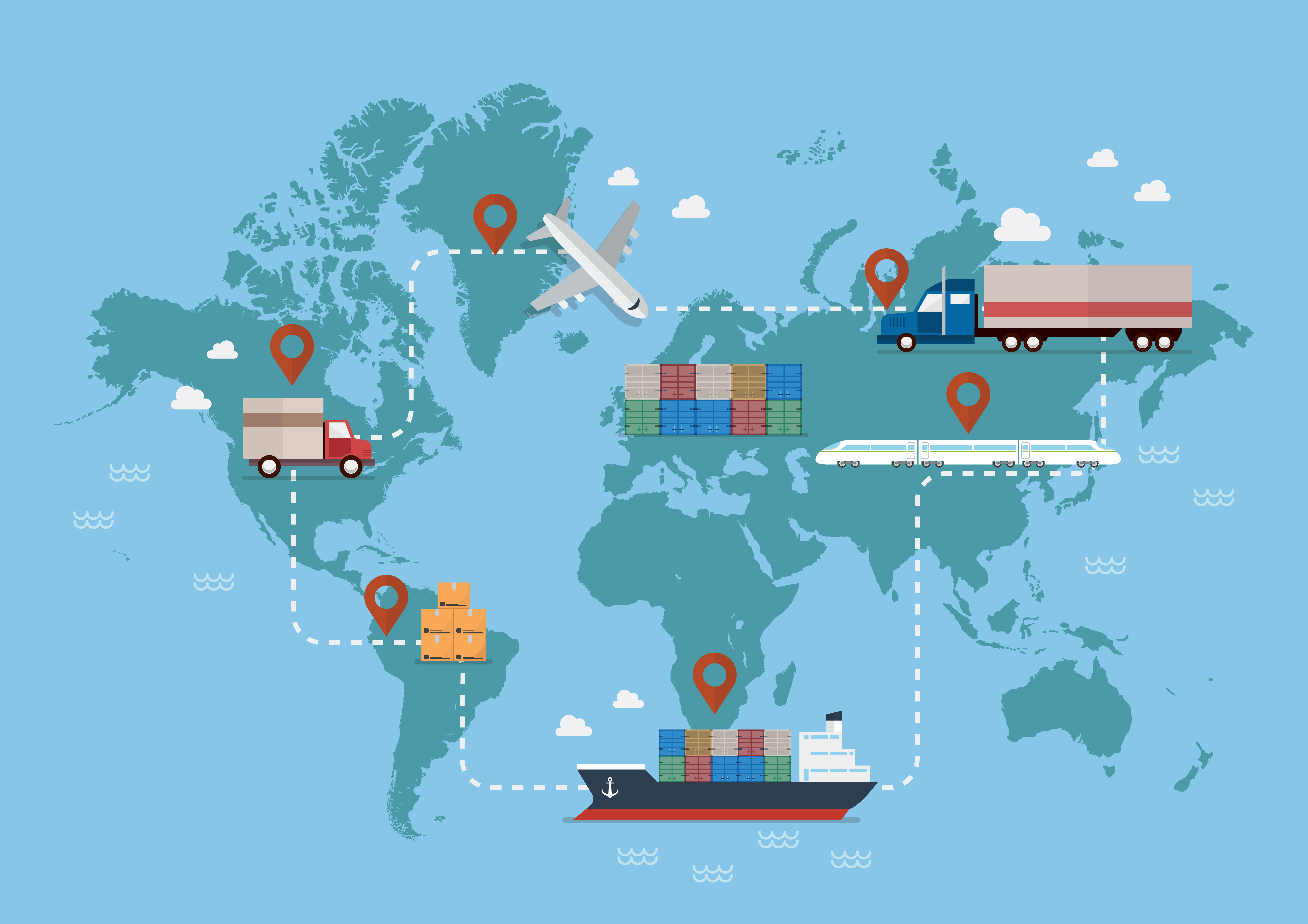The Impact of Geopolitics on Global Supply Chains: What Businesses Should Know

The relations between politics and economy have become increasingly visible particularly with the emergence of globalization. Politics is an important factor that impacts not only the economy, but international relations as well. Political landscapes morph over time as conflicts arise, diplomacy shifts, and economies become more intertwined. As we go through this blog, we would put light on how would businesses adapt to an ever-changing dance of international politics and its impact on global value chains.
Now, coming back to the issue of globalization and politics: supply chains have been moving toward a borderless space and for a long time trade was free and unbothered by the implications of international politics. However, as frameworks evolve, such as firms altering how they source raw materials or target consumers, so do the power dynamics between states. Globalization has induced this idea of a ‘better world’ in which cooperation is endless whereby international tension is rendered as useless.
The practice of protectionism is likely one of the major consequences of the interplay between politics and the policy of doing trade globally. More and more countries in the last few years are implementing measures that seek to boost local production and at the same time reduce international trade. Raising tariffs, introducing quotas and other measures may add to costs and lengthen lead times, thereby compelling firms to rethink strategies in respect to our supply chain management. The new tariffs and restrictions cause heavy reliance on imports and the supplier or logistics should bear the loss while the logistics should be reorganised to adopt to the costs.
Additionally, certain geopolitical events may create a blockade of areas which would in turn increase complexities when trying to arrange for suppliers or source materials globally. For example, international or civil wars, civil unrests or riots may interfere with the various routing systems across which goods are transported which in turn raises the issue of how to transport these goods. This uncertainty demands that firms are very flexible and are able to make timely decisions. Attempting to spread out supply points and being careful to observe political processes in critical areas would offset risks related to this sort of uncertainty and changes.
Lastly, the effects of cross-border trade should also be taken into account. The North Amercian Free Trade Agreement (NAFTA), now the United States-Mexico-Canada Agreement (USMCA) for example is a trickle of how politics can influence trade. Alterations in these pacts can either create fresh opportunities for firms or limit their access to established ones. It is important for such businesses to remain vigilant about these changes and their significance in such a case.
Moreover, the covid-19 pandemic exposed the essentiality as weak points in regards to political tension of these chains. Affected by the pandemic, a lot of organizations started to once again evaluate their dependency on one region or one supplier, therefore interest in nearshoring and reshoring shot up. By relocating the manufacturing base of an organization closer to itself, a company tries to curtail the risk of switching to long shipment routes raised by a politically unstable environment. It does not only widen the problem of the passes or interpreters but encompasses the concerns of the inter-country economies as well.
When embarking on an endeavor to manage the challenges arising from geopolitics and supply chains, a business is forced to adopt a multi pronged strategy. Of primary importance, businesses should spend on establishing strong risk management practices. This includes not only having knowledge of the possible geopolitical threats they encounter but also having backup plans in place. While scenario planning does not predict the future performance, it gives an insight into how a business is likely to react under one or more geopolitical situations, helping businesses be more proactive in case of a situation requiring rapid response.
Furthermore otDinM4tA, restrictioSreplenishing logistics and amzonal49 AI can significantly episode goodchain resilience. Using accurate predictive market analysis to allow for on-time decision making processes. Simulation and IT driven predictive tools, businesses can track international relations and re-alter their strategies.
Also our cooperation is determined as another important factor of successful strategy. A keen interaction with suppliers, logistics partners as well as other competitive businesses can form a pool of resources in looking for solutions in the face of geopolitical issues. Strong lines of communication mean quicker responses and altered situation in the case of a 3element.
On the whole, one might argue more optimistically that the outlook nonetheless remains bright. The tumble witnessed in the love of many consumers for most retailing places has started to recover. There are estimates that suggest that this will be hit by about 5% in the coming years and this would continue to be a strong movement for retailers to penetrate and begin conquering. As they continue voicing their opinions, more and more variants of languages and dialects have begun gaining masteries, globalization has no definitive end; it is only growing stronger.
In conclusion and in summary depoliticization, deregulation, decreased government intervention have become common parlance across the world, and everyone seems ready to embrace this new trend. However, workable common ground across categories has been found to be somewhat of a challenge cut it off for the unwashed masses; and therefore the dispositional hinge effect prevents true leaning across the boards. Today opening a new company has become cheaper than ever, so if one has competition, there’s absolutely no real risk and potentially massive benefits to launching a competing firm.


